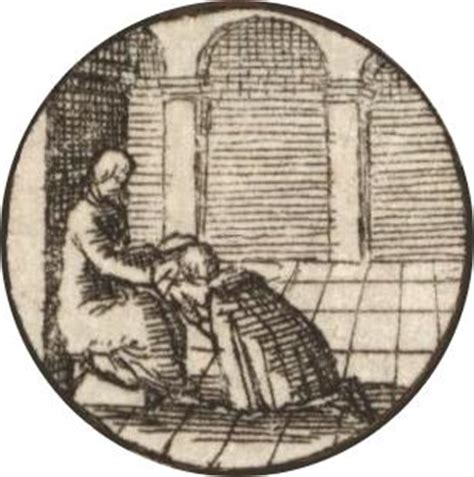The Lutheran Church Missouri Synod has just issued a major study of the doctrine and practice of confession and absolution. The report by the Commission on Theology and Church Relations establishes the Biblical and theological basis for confessing your sins to a pastor and receiving forgiveness from his words of absolution.
This may sound strange to you Protestants who are not Lutherans. What do you do with John 20:21-22? “Jesus said to them again, ‘Peace be with you. As the Father has sent me, even so I am sending you.’ And when he had said this, he breathed on them and said to them, ‘Receive the Holy Spirit. If you forgive the sins of any, they are forgiven them; if you withhold forgiveness from any, it is withheld.’”
Lutherans are like Catholics, Orthodox, and Anglicans in retaining confession and absolution. While the Lutheran practice looks like what Catholics do, like other seeming similarities, it is quite different. Confessing your sins to a pastor is strictly voluntary, not necessary for forgiveness as it is for Rome, and it is not necessary to enumerate every sin specifically before it can be forgiven. And Lutheran pastors require no “satisfaction”–that is, works to atone for your sin–as required by the Catholic rite of penance. The forgiveness applied by Lutheran pastors is simply the good news of the Gospel, that Jesus has atoned for your sins on the Cross, giving you forgiveness in His name.
Most Lutherans do their confession and receive their absolution corporately, at the beginning of the Divine Service. After a time of reflection on our sins and a corporate prayer in which we admit that we deserve God’s “temporal and eternal punishment,” we hear these words from the pastor:
Upon this your confession, I, by virtue of my office, as a called and ordained servant of the Word, announce the grace of God unto all of you, and in the stead and by the command of my Lord Jesus Christ I forgive you all your sins in the name of the Father and of the + Son and of the Holy Spirit.
But only Christ can forgive sins! Right. And He does so by means of vocation. That is to say, “calling.” Just as God gives daily bread by means of the farmer and creates new life by means of parents, Christ gives His Word of forgiveness by means of pastors. According to the Lutheran doctrine of vocation, God is present in and works through ordinary human beings whom He has called into various realms of service to their neighbors. This “calling” is at the heart of what pastors do. (“As a called and ordained servant of the Word. . . .and in the stead and by the command of my Lord Jesus Christ. . . .”)
This happens every Sunday, but private confession and absolution has fallen into disuse. It is, however, a powerful weapon in the arsenal of pastoral care, allowing pastors to cut deeply into the heart of a sinner, eliciting repentance and a sense of great personal comfort from the Gospel. Currently, there are efforts to bring back the practice of individual confession and absolution.
Here are some excerpts from the CTCR document, Confession and Absolution. To download the entire report, go here.
The two words “confession and absolution” are worthy of some clarification. “Confession” occurs in more than one setting or context. The root word from the New Testament is ὁμoς, [homos] “one and the same.” The basic meaning of the related Greek compound noun ὁμoλoγἰα is “an agreement” by which two parties say the same thing, and the compound verb ὁμoλoγέω is similarly used as “to agree.” Thus, “if we confess our sins” (1 John 1:9), we are saying the same thing that God is saying about our sin. We are agreeing with what God reveals about us and our sin. We are admitting (acknowledging) that the Lord’s judgment upon our sin is right and true.2 The second word, “absolution,” is a synonym for forgiveness. Lutheran theology dictates that in any discussion of “confession and absolution,” it is this second word that requires emphasis. . . .
Luther speaks of confession of sins in three settings: 1) private confession to a pastor; 2) confession to God alone (as we find it in the Lord’s Prayer, Matt. 6:12); and 3) confession made to a fellow Christian (James 5:16). . . .
First, no one should assume that a different kind or quality of forgiveness from Christ our Lord is given in the context of individual confession. All of the Means of Grace — Baptism, the Lord’s Supper, preaching — convey the same forgiving Gospel. In this respect, there is no difference between private confession and absolution and that which is conducted on Sunday mornings in public worship. One Lutheran theologian put it succinctly: “Private absolution is neither more nor less than the absolution the whole congregation receives in the gospel. Rather, it is nothing other than the gospel the whole congregation receives, specifically applied to the circumstances of the individual sinner.”
It is our goal to explain why, even though the same Gospel is given through the various Means of Grace, private confession and absolution may be a considerable aid to all Christians, and especially useful to pastors, who share in the burdens of their people and who are susceptible to unique temptation and discouragement. It is first of all necessary, however, to clearly establish the biblical foundation for confession and absolution. . . .
Along with these developments came the threefold understanding of “penance” in the Roman tradition. Penance had three parts: confession, absolution, satisfaction (or four parts if contrition is included before confession). The absolution pronounced in the indicative was still conditioned on the works of satisfaction outlined by the priest — your sins are forgiven, but you must still do the works demanded of you to avoid penalties in purgatory. This served as the launching pad for confession and absolution to be viewed as something related to making amends. In the period leading up to the Reformation, Rome officially formulated its position at the Council of Florence in 1439 that established what poenitentia (penance) consisted of: contritio (contrition/ sorrow over sin), confessio (confession necessarily made to a priest) and satisfactio (the satisfaction or works of penance adjudicated by the priest).
Luther believed this was a fundamental misunderstanding of the gift of absolution and strove to bring it back to its biblical foundations. For Luther and the other confessors, the keys convey the Gospel (in the broad sense as both Law and Gospel), by condemning, in God’s name, self-assured people of their sin and by assuring the contrite of their forgiveness. The binding key, however, is for Luther only a means to an end. The ultimate aim of the keys is the forgiveness of sins. . . .
The preceding material indicates that the authentically Lutheran view of individual confession and absolution is largely unique, occupying a middle ground between Rome and evangelical Protestantism.44 Unlike most Evangelicals or other Protestants, Lutherans do not repudiate private confession before a minister and steadfastly uphold the propriety and efficacy of the pastor’s absolution in the name of Christ.45 Unlike Rome, however, Lutheran teaching and practice makes private confession entirely voluntary, rejects the notion that one must (or even can) enumerate all one’s sins before a confessor, and rejects the addition of satisfaction as confession’s third element. Lutheran teaching upholds the absolution above all else and affirms its great comfort for the individual penitent.
Illustration: A woodcut to Article XI of the Augsburg Confession by Wenceslas Hollar (1607-1677) [Public domain], via Wikimedia Commons













